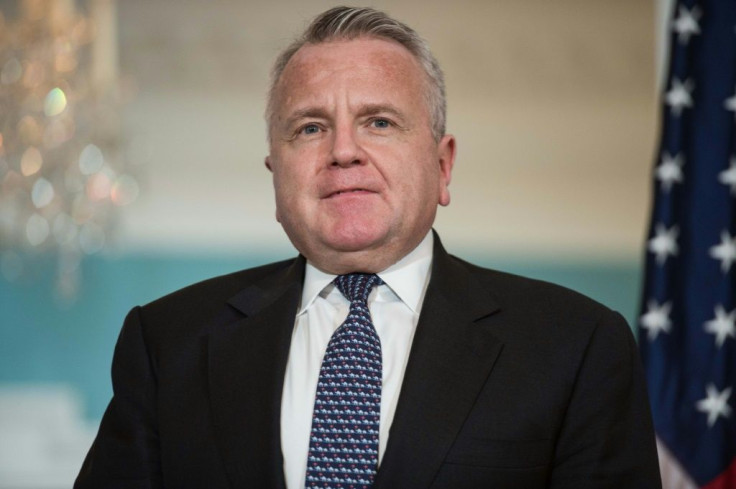US Nominee Says Will Press Russia On Election Meddling

The nominee to be the next US ambassador to Moscow promised Wednesday to push Russia against election meddling, although he voiced hope for cooperation on other fronts.
Appearing before the Senate Foreign Relations Committee, John Sullivan -- now the number two at the State Department -- mostly was asked about Trump's alleged efforts to pressure Ukraine, the focus of an impeachment inquiry.
But Sullivan also vowed a robust response against Russia election interference despite Trump's public doubts over US intelligence's findings that Moscow sought to help elect the mogul in the 2016 election.
Sullivan called for "principled engagement" with Russia on "areas of shared interests," citing arms control, non-proliferation and counter-terrorism.
Sullivan, however, promised "resolute opposition to Russia where it undermines the interests and values of the United States and our allies and partners, for example by threatening stability in Europe and election security in the United States."
Asked by Senator Robert Menendez, the top Democrat on the committee, about Trump's statements on election interference, Sullivan said he had devoted significant time at the State Department to voting security.
"The United States government hasn't accepted that it's a hoax. The United States government's position, led by President Trump, is we're dedicated to stopping it," he said.
Menendez warned that he could reject Sullivan's nomination if he shared Trump's vision on Russia.
"Is success fulfilling President Trump's pro-Kremlin vision for the US-Russia bilateral relationship? Or will you actually advocate a policy that protects US national security?" Menendez said.
Trump has repeatedly voiced admiration for President Vladimir Putin and at a 2018 summit in Helsinki appeared to accept at face value the Russian leader's denials that Moscow interfered in US elections.
Trump has repeatedly lashed out at the "hoax" that his campaign worked with Russia in the 2016 election.
A report by former FBI chief Robert Mueller concluded that the Trump campaign did not collude with Russia but did not take a position on whether he tried to obstruct the probe.
© Copyright AFP {{Year}}. All rights reserved.





















